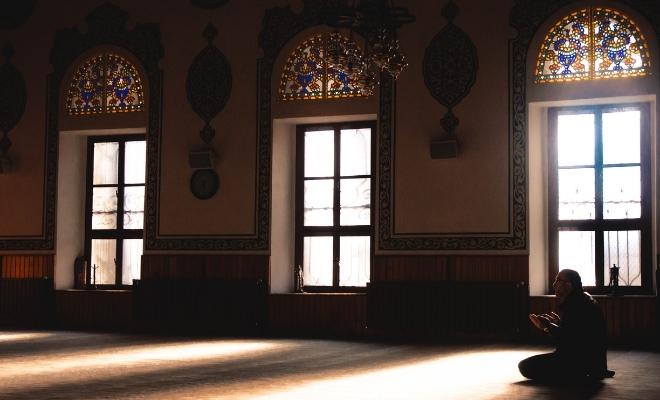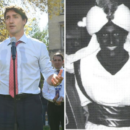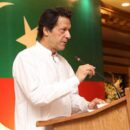Unmasking Quebec’s Hijab Ban

The Coalition Avenir Quebec (CAQ) won the provincial election in Quebec by a landslide, by emphasizing their commitment to lowering government spending, along with catering to nativist hostility towards immigration that is rampant in Quebec. Upon achieving victory, the CAQ has already made some significant policy statements, including reducing the number of immigrants allowed into Quebec and subjecting immigrants to a language and values test that will be required in order for them to stay in the province.
Their most aggressive stance has been the proposed imposition of a ban on civil servants who are in a “position of authority” to wear any kind of religious symbols, including a Hijab, cross, turban, or kippa. These positions of authority include judges, police officers, and even school teachers. This is purported to maintain religious neutrality and secularism in Quebec.
When advised that this proposed legislation would likely be struck down by the Supreme Court, Francois Legault – the head of the CAP – threatened to use the “notwithstanding clause,” which would shield his proposed law from being struck down by courts for Charter violations.
What is the impact of these policies – not only in Quebec but across Canada, and what should be our response?
Continuing xenophobic politics
It should be clear that there is nothing new about this proposition. This is simply the latest stage in a protracted battle between our Muslim sisters who wish to practice their Deen and the xenophobic self-serving politicians who will use them as cannon fodder for their own petty political ambitions.
In particular, Quebec politicians and their supporters have a sordid history of trying to force their values on Muslims. They failed to convey their way of life through rational argument, and are therefore resorting to force. The Parti Quebecois was the first to introduce a similar concept with the controversial “Charter of Values” that sought to forbid civil servants from wearing religious symbols.
The law then, same as this new proposal now, allowed Christian to wear small crosses (big ones are forbidden), elected officials will continue to swear on Bibles, and crosses will remain in the legislature and on other public properties. When Legault was asked about this apparent contradiction – namely the large cross hanging in Parliament being kept, he comically maintained that the cross is not a religious symbol, but rather is a testament to Quebec’s history.

The crucifix in Quebec’s National Assembly
Even if we are to accept the logic that the crucifix is not a symbol of a particular religion, it is much harder to understand why honoring the memory of fallen colonialists would be more important than allowing people to practice their deeply-held religious commitments.
Are the tribal commitments of “tradition” and nationalism now more sacred than the relationship between human beings and their Creator?
It’s not just Quebec
This issue is not only restricted to Quebecois parties, rather the prominent national parties of Canada have delved into this kind of fear-mongering xenophobia as well. Who doesn’t remember the Conservatives under Harper trying to block Sister Zuniera Ishaq from wearing a Niqab at her citizenship ceremony. The Liberals also authored their 2nd Niqab ban under Premier Coulliard via Bill 62, which would block a woman from receiving any public services if she was wearing a Niqab.

Ex-Canadian PM Stephen Harper and ex-Quebec Premier Philippe Couillard
It should be clear that dipping into the well of bigoted fear-mongering is not something that any of the established national parties shy away from. It is something that can and does impact us in Ontario and elsewhere in Canada.
As noted above, almost all notable federal parties have relied on similar scare tactics, and there is a rising trend of nationalist sentiment in Canada that is toxic for Muslims, along with other religious and ethnic minorities.
The reason for this is that the Canadian ruling elite realize that there is a significant portion of the population that is suffering from the inherent corruption of the system, resulting in a shrinking share of societal wealth and the inability of the common man to sway political discourse.
Therefore, these politicians are trying to capitalize on this discontent, as well as distract the ensuing anger away from any thought of change. This explains the rise of nationalism and xenophobia across Canada, not just in Quebec.
More of the same?
So, is this new legislation the same as the old Niqab ban?
No, this legislation has a much more significant effect on one of the most fundamental aspects of Canadian culture: the tolerant society that opens up its arms to immigrants. This is because, unlike last year’s proposed Niqab ban, this Hijab ban targets the whole Muslim community. For example, had the Niqab ban been passed, it would have only affected 10 out of the 118,000 people who visited the health board’s Montreal office (in 2008-09). Hijab, however, is seen as a more integral part of Islam by the Ummah and therefore this ban is seen much more as an attack on Islam and Muslims.
As noted by Fo Niemi, Executive Director of the Centre for Research-Action on Race Relations (CRARR), “Ultimately, this charter is creating separate but equal societies.” As noted in the Montreal Gazette article that quoted Niem, the term “separate but equal” was a term used by Americans in the 1890s to justify a racially segregated society. In other words, CAQ’s legislation will lead to an environment where Muslims are treated like second-class citizens.
Understanding the scope and severity of this problem, we cannot be silent about this issue and must express our discontent with this proposed legislation.
Raising this issue with wider society
The impact of a Hijab ban is not isolated to Muslims or other religious minorities, but affects the fabric of Canadian society. As noted above, this ban will fundamentally alter the reputation of Canadian society from being one of openness and tolerance to a society of ethnic tension. Therefore, it is something that the average Canadian should be concerned about.

So, how should we discuss the issue with the wider society?
We must discuss this matter on the basis of Islam alone. It is wrong to discuss on the basis of freedom and human rights, as these ideas do not emanate from the Islamic Aqeedah.
Furthermore, these same principles are the basis upon which attacks are launched against Islam in the first place. The printing of the cartoons that insulted RasulAllah (saw) or allowing right-wing personalities to speak at Canadian universities to spew out their hatred towards Muslims and Islam, are all justified by freedom of speech. It would be contradictory and hypocritical to call for freedom when it is beneficial to Islam, but attack freedom when it goes against Islam. More importantly, the only Deen before Allah (swt) is Islam, not the “Deen of freedom.”
The invasions of Iraq and Afghanistan were justified in the name of freedom; Senator Phil Graham and the US congress deregulated the banks in the name of freedom and proceeded to destroy the world economy through the issuance of sub-prime backed bonds; the industries that pollute the air, seas, and land do so in the name of a free market. And none of that was or is acceptable.
Therefore, it is wrong to argue based on such ideas, as Allah (swt) has guided humanity through Islam.
Following the Messenger (saw) in times of difficulty
The other aspect of the Hijab ban is to push Muslims to compromise in their Deen. Allah (swt) revealed:
“They wish that you should compromise (in religion, out of courtesy) with them, so they too would compromise with you.” [68:9]
The impact of CAQ’s legislation is predictable. We have seen how the original PQ Charter caused Muslims in Quebec to feel rejected by society. For example, the Montreal Gazette quoted 27-year-old Hassan Abdullahi as saying, “I’ve developed an attachment to Montreal. (I like) the diversity and the multiculturalism. I’ve never actually thought of leaving Quebec for reasons of divisiveness, but the Charter’s actually making me want to leave.”
In these difficult times we should reflect on how RasulAllah (saw) taught the Sahabah (ra) to deal with such situations. RasulAllah (saw) allowed the Sahabah to immigrate to Abyssinia to live under the safety and hospitality of Al-Najashi. Once Quraysh heard about this, they sent ‘Amr bin Al-’Aas and ‘Abdullah bin Rabee’ah to persuade Al-Najashi to send the Muslims back. Initially, they failed to convince him. However, the next day ‘Amr bin Al-’Aas went back to Al-Najashi and said to him, “The Muslims say dreadful things about ‘Isa, son of Maryam; send for them and ask them about it.” Ja’far bin Abi Talib (ra) led the Muslim delegation in response.
It is important to note here how severe the torture was upon the Sahabah (ra) in Makkah. The Mushrikeen of Quraysh used to place hot coals on the back of Khabbab bin Al-Aratt (ra) until he could smell his own flesh and fat burn. In other words, the consequences for failing to convince Al-Najashi were dire. If Ja’far (ra) failed to convince the ruler of Abyssinia to allow them to stay, it would have meant that the Sahabah would be heading back to the severe torture of Quraysh. Despite this, Ja’far (ra) said:
“We say about him that which our Prophet brought, saying: He is the slave of Allah , His Messenger, His Spirit, and His Word that He cast into Maryam, the blessed virgin.”
In other words, he (ra) answered based on what RasulAllah (saw) taught him. He clearly mentioned that Isa (as) was a slave of Allah (swt), even though the Christians believed he was the son of Allah (swt) – exalted is He above such a thing. Also, the Sahabah refused to bow to Al-Najashi, even though it was considered very disrespectful to not do so.
Similarly, we today must only answer based on what Islam says, and never compromise on how we speak to society.
The Muslim community – through Muslim organizations, associations, and the Masajid – need to approach Canadian civil society, including unions, women’s organizations, and other groups who assist the oppressed, with the following message: Targeting the Muslim community and our Deen is going to lead to the isolation of our community, increase the tensions between the different communities, and undermine the reputation of Canada as a hospitable land. The consequences are dire and far-reaching.
We must also strive to give da’wa to our non-Muslim colleagues, neighbors, and classmates. This requires us to understand how to rationally prove the existence of Allah (swt), the need for Messengers, and the authenticity of the Qur’an.
Ultimately, as long as we are not living under the shade of the Khilafah, we will remain under the threat of a ban like the one in Quebec, and worse. Man-made legislation is subject to the whims and contradictions of the human mind.

May Allah (swt) protect us and enable us to continue to practice our Deen.
“Truly, along with every hardship is relief; truly, along with hardship is relief.” [94:4]









